Overview
Cleveland Clinic's Plastic Surgery Residency dates back to 1979. Since that time, we have graduated residents who have all gone on to successful careers in both the private and academic worlds. Among these numbers are both department chairs and program directors. As a result of our longevity and international reputation, we have contacts throughout the country, and abroad, all willing to help our new graduates establish their place in the plastic surgery world.
Cleveland Clinic is recognized in the U.S. and throughout the world for its expertise and care. Training at the Cleveland Clinic provides a variety of educational opportunities. These include, but are not limited to, a vast surgical experience derived from over 100 operating rooms on the Main Campus alone, as well as exposure to our surrounding affiliates either operating at one of several partnering institutions (Akron Children’s Hospital, MetroHealth Medical Center, & the Cleveland VA), ambulatory surgical centers, or via referrals from the larger Cleveland Clinic Health System.
Additional educational opportunities involve regular cadaver dissections, weekly Plastic Surgery conferences, monthly journal clubs (routinely held at popular Cleveland restaurants) and quarterly visiting professorships. We hold workshops for injectables on a regular basis as well as workshops related to microsurgery, hand surgery, and craniofacial surgery. In 2018 our Department sponsored the annual meeting of the Ohio Valley Society of Plastic Surgeons, and we routinely send our residents to national meetings, including the American Society of Plastic Surgeons annual meeting, as well as others, to display their scholarly work.
Our expert Cleveland Clinic plastic surgeons and caregivers are committed to a learning environment that rewards a job well done with increasing responsibility and independence. With over 1,800 residents and fellows in the enterprise, our GME office has a wide array of resources available to all trainees, and at all levels.
Cleveland Clinic itself is home to many “firsts” in medicine and our department maintains that strong heritage of innovation including the original research that ultimately led to the United States’ first face transplant. More recently, in 2018, Cleveland Clinic plastic surgeons performed a face transplant on the youngest patient in history, which was chronicled in National Geographic. Other current endeavors include a comprehensive cleft and craniofacial center, planning for upper extremity transplantation, and a burgeoning lymphatic reconstruction program. Past highlights in our department include the world’s first laryngeal transplant and groundbreaking work in nipple sparing mastectomy for breast cancer treatment. Additionally, a large cosmetic surgery effort provides our residents with a broad and diverse opportunity in facial aesthetics and other cosmetic procedures of the breast and body.
Our worldwide reputation makes us a destination for patients, international visiting dignitaries, and physicians from all around the globe.
Diversity & Inclusion
Discover the role diversity and inclusion plays at Cleveland Clinic and at its Graduate Medical Education program, as well as our diversity and inclusion efforts.
Learn MoreLearn MoreAcademic Overview
Rotations
View the rotation schedule for each year of residency.
Conference/didactics
Thursday Morning Conference: Significant improvements have been made to the didactic curriculum for academic year commencing in 2022. Weekly conferences are held every Thursday morning, beginning with an hour devoted to “Indications Conference,” where residents will work through clinical vignettes presented by the assigned attending. The second half of conference is a more traditional lecture in preparation for the following week’s indications conference. Weekly topics are based on the ABPS EdNet curriculum, which is covered in its entirety each year. While virtual attendance is heavily integrated into our educational infrastructure, the majority of residents attend in person.
Advanced Didactics: Surgeons from both inside and outside the department and Cleveland Clinic give more of a “deeper dive” into more complex topics outside of the standard curriculum on an at least monthly basis.
Journal Club: Held monthly (Thursday evenings) at a local restaurant, faculty home or at Main Campus.
Morbidity & Mortality Conference: Held monthly (Wednesday mornings).
Throughout the year visiting professors, anatomy labs, injectables clinics, and hands-on industry-sponsored workshops help to further enhance the strong foundational curriculum.
Cadaver labs
A close association between Cleveland Clinic's Department of Plastic Surgery and the Cleveland Clinic Lerner College of Medicine of Case Western Reserve University School of Medicine provides our residents with a vast number of educational and research opportunities. Amongst this is unlimited access to a state-of-the-art fresh cadaver lab in our very own campus—the only one of its kind in the world (no embalming). Our faculty conduct several cadaver dissection labs a year allowing residents an opportunity to review complex anatomy as well as to perfect dissection skills. The most popular session is our "Flap Lab". Of note, residents may request cadaveric specimens at any time, for research purposes, or to further hone their plastic surgery skills before a difficult case.
Teaching experience
Our plastic surgery residents have opportunities to teach junior residents and medical students in the clinic, hospital and surgical settings. Additionally, Cleveland Clinic's medical school program, the Cleveland Clinic Lerner College of Medicine of Case Western Reserve University School of Medicine offers additional learning and teaching opportunities to our residents. Our residents have been involved in anatomy labs with the medical student and have the opportunity to take classes related to teaching and administration. Historically, our residents have also earned the title of Clinical Instructor of Anatomy by volunteering in the cadaver lab, performing prosections and presenting material to the students for a modest amount of time.
Resident feedback & evaluation
In an effort to improve the educational experience within the Residency Program, we have implemented myTIPreport as a means of providing fast and focused feedback. This has allowed our faculty and residents to more easily identify areas for improvement, with particular emphasis on operative knowledge and ability. As a result, meaningful progress towards independent practice can be monitored and supported. Thanks to a user-friendly mobile application, feedback can be elicited on-the-go. More information here: https://mytipreport.org/guides/v1/benefits-of-mytipreport.
Embedded subspecialty training program
During their final year, our chief residents have the opportunity to participate in a focused subspecialty training experience of their own design. In other words, the chief residents will enhance their general plastic surgery training with a deeper dive into subspecialties of their particular interest. This is achieved through rotational changes spanning up to 6 months. We began piloting this program during the 2022-2023 academic year, and options include aesthetics, craniofacial surgery, hand and upper extremity, microsurgery/supermicrosurgery (lymphatic reconstruction), and transgender surgery. Custom-tailored options are also possible.
Resident cosmetic clinic
Our plastic surgery resident clinic is an opportunity for senior residents to see cosmetic surgery patients independently under the direction of a faculty member. This clinic gives our residents the ability to improve upon their aesthetic surgery knowledge as well as learn the nuances of patient interaction in an aesthetic clinic setting. The residents formulate a plan, present it to the supervising attending, act as primary surgeon and are responsible for near and long term follow up of the patients. This is an opportunity to make decisions with the comfort of experienced aesthetic surgeons in consultation. Emphasis is placed on developing not only clinical and surgical skills, but also those that apply specifically to a private cosmetic practice.
Microsurgery course
The Department of Plastic Surgery runs a busy Microsurgery training lab. Training in Microsurgery is directed to surgeons in the following specialties: plastic surgery, orthopaedic and hand surgery, as well as general surgery, neurosurgery, urology, gynecology, and otolaryngology. The courses are also directed to trainees in those specialties and researchers who seek training in practical microsurgery at either of two levels, basic course for one week, or advanced course for one week.
Microsurgery courses are held on a weekly basis throughout the year. The five-day course runs from 8 am–5 pm, Monday through Friday, excluding the weeks with holidays.
The microsurgery laboratory accommodates up to five trainees at a time. The courses utilize videotapes and direct one-on-one teaching. All surgical procedures are performed on laboratory rats. All instruments, suture material, and microscopes used are of the highest standards available. Each trainee will have access to a Zeiss operating microscope and one-on-one instruction. Residents are particularly fortunate in that rats are available to them at any time, for either research purposes, or to hone their skills before a difficult case in the coming days.
Applying
Applying
Number of residents per year: 4 ACGME accredited positions (Integrated pathway)
Program length: 6 years (Integrated pathway)
Application process
Application Deadline: To be determined
All applications must be submitted via ERAS and the Plastic Surgery Common Application (more information via the ACAPS website) and must include:
- Medical school transcript
- Three letters of recommendation
- Dean’s Letter
- USMLE scores
Interview dates: Please refer to the ACAPS interview dates webpage for up-to-date information. We will follow ACAPS guidelines, which at this time includes virtual interviews. However, typically we prefer to hold our traditional in-person interviews over two days, e.g., a Friday and Saturday, punctuated by a popular reception Friday evening.
For questions please email: Jodi Ours, Program Coordinator
Phone: 216.445.4724
Fax: 216.444.9419
Email: oursj1@ccf.org
Medical Student Rotations
For medical students interested in a clinical rotation/sub-internship within the Department of Plastic Surgery, the first step is submitting an application via the VSLO (Visiting Student Learning Opportunities) website (Elective SURG 4002C – Plastic Surgery). Once accepted through VSLO, Cleveland Clinic also requires applicants to complete an official internal application for verification and onboarding purposes. At the time of conditional acceptance, the link to this application will be provided. Cleveland Clinic’s internal application fee ($200 for domestic students) will be paid by the department, and you will NOT be required to pay this fee (please use the discount code included in the VSLO elective description, e.g. PLAST23).
The rotation is designed to be four weeks long to allow students to rotate across our various clinical teams. However, we also understand that due to scheduling conflicts, rotations may have to be truncated. Please reach out to the Program Coordinator if you need to adjust the length of the rotation.
Additionally, for students who will be bringing a car and completing a four-week rotation, one week will be spent at MetroHealth. Please note that a car is not required to rotate with our program as we understand that on-campus housing at Cleveland Clinic is one of the rotation's benefits, beyond the great educational experience. It is perfectly reasonable to complete all four weeks of the rotation at Cleveland Clinic’s Main Campus (as had previously been the norm for many years). However, we also wanted to ensure rotators had the opportunity to experience another one of our core clinical sites, which also offers exposure to the full breadth and depth of plastic surgery in a Level 1 Trauma Center setting.
If you do choose to bring a car with you during your rotation, parking at Cleveland Clinic Main Campus is free for students. At MetroHealth, parking is $8 for the week.
Please ensure that you submit your application more than 10-12 weeks prior to your intended start date, to allow sufficient time for application processing.
For questions please email:
Jodi Ours – Program Coordinator
Email: oursj1@ccf.org
Phone: 216.445.4724
Fax: 216.444.9419
Faculty
Steven Bernard, MD Residency Program Director |
Raymond Isakov, MD Associate Residency Program Director |
Department of Plastic Surgery Staff
Akron Children's Hospital Staff
- Ananth Murthy, MD
Program Director, Craniofacial Fellowship - Niyant Patel, MD
MetroHealth Medical Center & Cleveland VA Staff
- Bram Kaufman, MD
Director, Division of Plastic Surgery (MetroHealth) - Ali Totonchi, MD
- David Rowe, MD
Section Chief, Plastic Surgery (Cleveland VA) - Kyle Chepla, MD
- Christina Vargas, MD
- Christi Cavaliere, MD
Private Practice
Current Residents
PGY-6
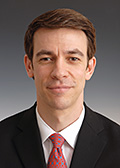
Brett Baker, MD
Undergraduate: Wake Forest University, B.Sc. Biology
Medical School: Wake Forest University School of Medicine
General Surgery: Carolinas Medical Center
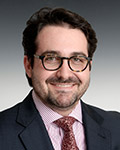
Demetrius M. Coombs, MD
Undergraduate: Westminster College, B.Sc. Biology
Medical School: Drexel University College of Medicine
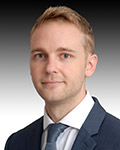
William "Tripp" Leavitt, MD
Undergraduate: Stanford University, B.Sc. Biology & B.A. Studio Art
Medical School: Boston University School of Medicine
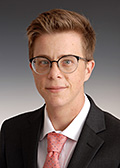
Charles “Charlie” Raymer, MD
Undergraduate: Wofford College, B.Sc. Biology & B.A. Spanish
Medical School: The Brody School of Medicine at East Carolina University
General Surgery: Maine Medical Center
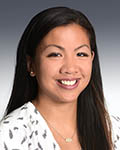
Corinne Wee, MD
Undergraduate: Harvard University, B.A. Romance Languages & Literature
Medical School: The Ohio State University College of Medicine
PGY-5
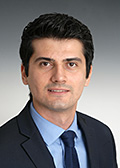
Cagri Cakmakoglu, MD, FEBOPRAS
Undergraduate: Anadolu University, B.Sc. Management of Health Institutions
Medical School: Istanbul University, Cerrahpasa Medical School
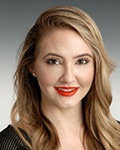
Hannah England, MD
Undergraduate: Furman University, B.Sc. Biology
Medical School: University of South Carolina School of Medicine Greenville
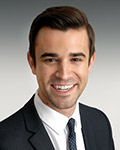
Russell Frautschi, MD
Undergraduate: University of Texas Austin, B.Sc.Health Policy & Management
Medical School: Case Western Reserve University School of Medicine
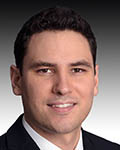
Marco Swanson, MD
Undergraduate: Johns Hopkins University, B.Sc. Neuroscience
Medical School: Case Western Reserve University School of Medicine
PGY-4
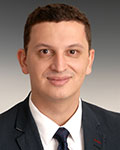
Anthony Deleonibus, MD
Undergraduate: John Carroll University, B.Sc. Chemistry
Medical School: University of Toledo College of Medicine
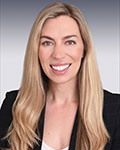
Morgan L. Fish, MD
Undergraduate: Ohio State University, B.Sc. Economics
Medical School: University of Toledo College of Medicine
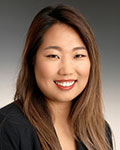
Christina “Dami” Lee, D.O.
Undergraduate: Purdue University, B.A. French Language & Literature
Graduate School: Kansas City University of Medicine & Biosciences, M.A Clinic Anatomy & Research
Medical School: Kansas City University of Medicine & Biosciences
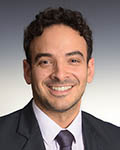
Rafael Alejandro Ramos Vecchio, MD
Undergraduate: Purdue University, B.A. French Language & Literature
Medical School: Universidad Central de Venezuela, Jose Maria Vargas School of Medicine
General Surgery: Universidad Central de Venezuela
PGY-3
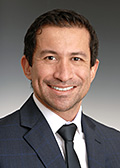
Daniel Lara, MD
Undergraduate: University of Texas M.D. Anderson Cancer Center, B.Sc. Molecular Genetic Technology
Medical School: Weill Cornell Medical College
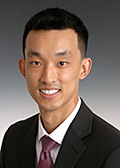
Christopher Jou, MD
Undergraduate: Johns Hopkins University, B.Sc. Neuroscience
Medical School: Stony Brook University School of Medicine
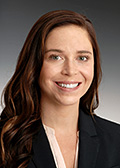
Rebecca Kelly, DO
Undergraduate: James Madison University, B.Sc. Biology
Medical School: Edward Via College of Osteopathic Medicine—Carolinas Campus
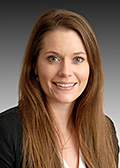
Stephanie Wythe, MD
Undergraduate: Texas A&M University, B.Sc. Biomedical Sciences
Medical School: The University of Texas Health Science Center at Houston McGovern Medical School
PGY-2
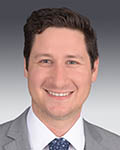
Daniel Bahat, MD
Undergraduate: McGill University, B.A. International Development & Urban Systems
Medical School: Sidney Kimmel Medical College at Thomas Jefferson University
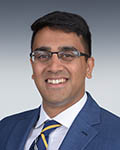
Vikas S. Kotha, MD
Undergraduate: St. Bonaventure University, B.Sc. Biology
Medical School: George Washington University School of Medicine and Health Sciences
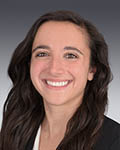
Samantha Maasarani, MD, MPH
Undergraduate: University of Illinois at Urbana-Champaign, B.Sc. Molecular & Cellular Biology and Chemistry
Graduate School: Loyola University Chicago, Master of Public Health
Medical School: Chicago Medical School at Rosalind Franklin University
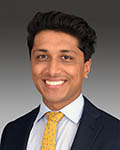
Viren Patel, MD
Undergraduate: Temple University, B.Sc. Biological Sciences
Medical School: Perelman School of Medicine at the University of Pennsylvania
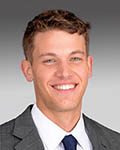
Ian Zelko, DO
Undergraduate: University of Wisconsin-Milwaukee, B.Sc. Biology
Medical School: Chicago College of Osteopathic Medicine
PGY-1
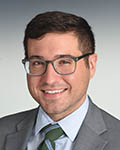
Mychajlo Kosyk MD, MPH
Undergraduate: University of Pennsylvania, B.A. Biology
Graduate School: University of Pennsylvania, Master of Biotechnology; Tulane University School of Public Health and Tropical Medicine, MPH Epidemiology
Medical School: Tulane University School of Medicine
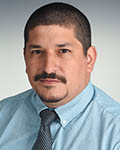
Carlos Xavier Ordeñana Ponton, MD
Medical School: Universidad Catolica de Santiago de Guayaquil
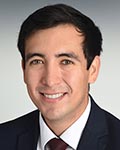
Alvaro Reategui Via y Rada, MD
Undergraduate: Johns Hopkins University, B.A. Romance Languages (French, Spanish, Portuguese), Latin American Studies and Natural Sciences
Medical School: University of Puerto Rico School of Medicine
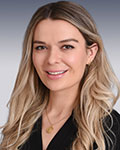
Agnieszka “Agnes” Zak, DO
Undergraduate: University of Connecticut, B.Sc. Biology and Philosophy
Medical School: Midwestern University Arizona College of Osteopathic Medicine
Alumni
2023
Brett Baker
Private Practice, HKB Aesthetic Surgery (Charlotte, NC)
Demetrius Coombs
Craniofacial Surgery Fellowship, The Craniofacial Center (Dr. Fearon)
William "Tripp" Leavitt
Hand Surgery Fellowship, Baylor College of Medicine (Department of Orthopedic Surgery)
Charles Raymer
Complex Gender and Microsurgery Fellowship, Harvard Brigham and Women's Hospital
Corinne Wee
Hand and Upper Extremity Fellowship, Harvard Beth Israel Deaconess Medical Center
2022
Katherine Grunzweig
Hand Surgery Fellowship, University of Pennsylvania
DeAsia Jacob
Hand Surgery Fellowship, Johns Hopkins
Nicholas Sinclair
Aesthetic Surgery Fellowship, UT Southwestern Medical Center
2021
Grzegorz Kwiecien
Hand Surgery Fellowship, The Mayo Clinic
Rebecca Knackstedt
Microsurgery Fellowship, The Cleveland Clinic
Brandon Specht
Private Practice/Military Service
2020
Brendan Alleyne
Aesthetic Plastic Surgery Fellowship, Dallas Plastic Surgery Institute
David Kashan
Private Practice, New York, NY
Rachel Aliotta
Hand Surgery Fellowship, University of Alabama
2019
Rafael Couto
Aesthetic Plastic Surgery Fellowship, University of Texas Southwestern Medical Center
Ritwik Grover
Aesthetic Plastic Surgery Fellowship, Beth Israel Deaconess Medical Center
2018
Paul Durand
Aesthetic Plastic Surgery Fellowship, Dallas Plastic Surgery Institute
Steven Rueda
Hand Surgery Fellowship, The Ohio State University College of Medicine
Research
Basic and clinical research have been fundamental to the mission of Cleveland Clinic since its establishment in 1921.
Today, the rate of discovery in the basic sciences and clinical medicine is accelerating rapidly. Combined with ever-expanding information technology, we are able to produce new knowledge on a historically unprecedented scale. As a major center of patient care activity, research and physician education, Cleveland Clinic is well-positioned to leverage this avalanche of new knowledge for the advancement of medicine and the benefit of humanity.
Basic science research
At Cleveland Clinic, basic scientific research is conducted both in clinical department research labs and at the Lerner Research Institute. For this reason, many staff members hold joint appointments in a clinical department (or multiple clinical departments) and within the research institute.
The Lerner Research Institute is one of the largest private research facilities in the country. Based on the yearly amount of NIH funding awarded, the Cleveland Clinic Research Institute ranks in close company with the Salk Institute, the Whitehead Institute, the Cold Spring Harbor Laboratory, the Wistar Institute and the Fox-Chase Cancer Center.
Clinical research
Each year thousands of patients are referred to Cleveland Clinic for leading-edge medical care and participation in clinical trials.
Cleveland Clinic's Institutional Review Board ensures the safety of all individuals participating in clinical trials. Cleveland Clinic's IRB is made up of physicians, nurses, bioethicists, attorneys, social workers and lay members, and their activities are monitored by the FDA.
Areas of major clinical research related to plastic surgery include:
- Breast reconstruction, including reconstruction of partial mastectomy defects.
- Skin-sparing and nipple-sparing mastectomy.
- Minimally invasive techniques in aesthetic and reconstructive surgery.
- Outcome data in aesthetic facial surgery, and aesthetic and reconstructive breast surgery.
- Bone substitutes.
- Craniofacial biology including molding helmets in craniosynostosis.
- Peripheral nerve disorders and diabetic retinopathy.
- Face Transplantation.
- Upper Extremity Transplantation.
- Lymphedema and surgical reconstruction of the lymphatic system.
A list of clinical trials seeking volunteers is available through the Cleveland Clinic Health Information Center. To determine if a specific clinical department is offering clinical trials, call 216.444.2200.
Cleveland Clinic's Department of Plastic Surgery is heavily invested in promoting scholarly activity amongst faculty and residents alike. While residents have no significant basic science research requirement, each resident is expected to complete one clinical research project per year, though as a result of personal initiative, many residents far surpass this expectation annually, and graduate with many publications and national presentations. The Plastic Surgery research program is directed by Bahar Bassiri Gharb, MD, PhD, whose lab focuses on research in microsurgery, limb transplantation, peripheral nerve surgery, wound healing and craniofacial biology. Dr. Bassiri is supported by three research fellows, a full-time laboratory technician, and teaching assistant. Ample opportunity for both internal and external funding exists. The research laboratory is 1800 square feet of space designated solely to the pursuit of discoveries in Plastic and Reconstructive Surgery.
For more information regarding research fellowship positions and how to apply, please refer to the Research Fellowship page.
Salary and Benefits
Cleveland Clinic sponsors one of the nation's largest graduate medical education programs, with 108 training programs approved by the Accreditation Council for Graduate Medical Education (ACGME), along with 92 special fellowship programs. Excellent support is provided to clinical trainees through the Department of Graduate Medical Education.
Additional helpful links accessible through the GME website:
- Salary.
- Employment benefits.
- Additional financial information.
- “Life Happens” Video Series: focuses on life-relevant topics (e.g., insurance, estate planning, investments and employment contracts, debt management) geared toward GME trainees.
- Living in Cleveland (includes housing resources).
- Employer Assisted Housing Program.
- House Staff Association.
Resident Life






Interested in applying?
Fellowships
The Cleveland Clinic Department of Plastic Surgery offers fellowship training across several plastic surgery disciplines:
- Microsurgery.
- Craniofacial surgery.
- Aesthetic surgery.
There are also several unique opportunities for mid-level providers seeking advanced training in plastic and reconstructive surgery.
Please refer to the dedicated website for Plastic Surgery Fellowship Programs for further information.